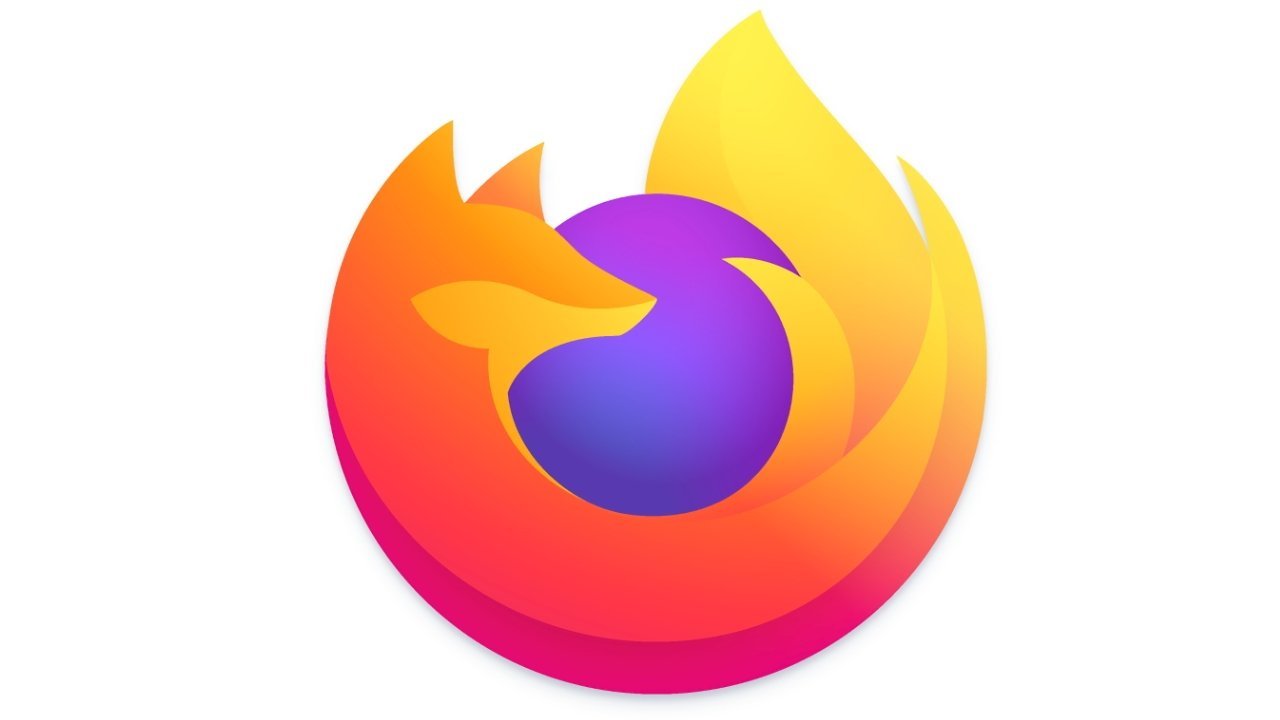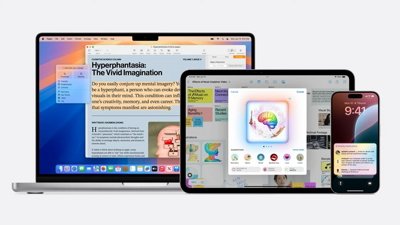Mozilla has taken aim at Apple, Google, and Microsoft, declaring in a report that operating systems make it too hard for other browsers, such as Firefox, to be used on the platforms they control.
Firefox lags far behind most other browsers in the world, with it used by 7.4% of desktop users and 3.16 of overall browser usage according to Statcounter. In a report published by Mozilla, platform owners including Apple are claimed to make it too difficult for rivals to persuade users to try out other browsers available on the market.
The report, "Five Walled Gardens: Why Browsers are Essential to the Internet and How Operating Systems are Holding Them Back," offers that competition is needed to advance innovation, privacy, and security, and that Apple's Safari, Google Chrome, and Microsoft Edge are just too dominant. In part, this is down to the operating systems doing a lot to lock in users to the parent company's choice of browser.
Mozilla makes the additional point in that the only large browser engine producers are Apple for WebKit, Google's Chromium Blink, and Mozilla's Gecko. With Apple focusing on its own platforms for WebKit, Chromium Blink has become the most-used engine, including being used by Edge, Brave, Opera, and other browsers.
The 66-page document asserts that operating systems make it "difficult or impossible for a consumer to switch browsers," and they do so by various means. This includes "inhibiting independent app discovery" by setting the company's own browser as the default and in prime position on the home screen or dock.
Curiously, Mozilla also complains about a lack of discovery in voice assistants like Siri, a feature that wouldn't usually rely on displaying a browser screen for the majority of audio-based interactions.
There are also issues in "prohibiting independent app adoption" by making it difficult to remove the existing default browser in place of using another. In cases where another browser is selected, Mozilla also claims that an operating system overriding the user's choice and opening the original default is "even more egregious than prohibiting rival software adoption."
Mozilla also warns of commercial practices aimed at independent firms, such as restrictive contracts that tie browser to operating systems and liming the preinstallation of alternatives. This is in reference to concepts such as Google's arrangement with phone vendors to allow the Play Store to be usable.
Restrictive App Store policies are also attacked, such as Apple's ban on alternative browser engines than WebKit. Mozilla does acknowledge that regulators are stepping up to combat such anti-competitive behaviors, but also that they have "yet to take action."
"As these companies have so far failed to do better, regulators, policymakers and lawmakers have spent considerable time and resources investigating digital markets," the report concludes. "They should therefore be in a good position to recognize the importance of browser competition and to act to prevent further harm to consumers from continued inaction and competitive stagnation."
"We call on them to enforce the laws which already exist and the laws and regulations which will soon come into force. And where existing laws and regulations are lacking, we call for them to be introduced and their importance for the future of the internet to be highlighted."
 Malcolm Owen
Malcolm Owen







-m.jpg)






 William Gallagher
William Gallagher
 Chip Loder
Chip Loder
 Marko Zivkovic
Marko Zivkovic



 Christine McKee
Christine McKee
 Andrew O'Hara
Andrew O'Hara




-m.jpg)




43 Comments
I basically use Safari for just about everything on my home Mac unless I have a problem with a particular website then I use Chrome. At work I use a PC and use Chrome generally for the internet and Edge for the company’s intranet.
Unfortunately, way too many people use Google Chrome on Apple devices. This blows Mozilla's complaint out of the water. Mozilla simply needs to go after Google directly for forcing the use of Chrome when dealing with Google apps and platforms. Yes, Safari can work but just like Adobe PDF products that include proprietary features that don't work with Preview, Google adds specific functions that only work with Chrome.
I use DuckDuckGo for browser searches but they add an iOS browser (macOS Safari extension) to the mix so, again, Mozilla needs to quit complaining and simply present a browser enough people want to use. Maybe a browser that isn't updated almost every time you open it up, including making UI changes without people knowing about it.
I stopped using Firefox. I use Safari or Chrome. Firefox is a great browser but I don't feel like there's an incentive to use FF except for tests.
There are no "watch apps" allowed on Apple's watchOS platform. Does Mozilla have a problem with that? I doubt it, because they're smart enough to know that if you build the platform you can restrict the software allowed on it. Same thing with iOS. Apple has no obligation to let other people replace core components of Apple's devices. Even Steve Jobs made this perfectly clear when he described the iPhone as a breakthrough Internet communications device (ie, web browser.) Would you expect Apple to allow developers to sell "alternative phone apps" for the iPhone? Why isn't Moronzilla complaining about that? It's the same problem there too.
The iPhone is not now, and has never been, and never will be, a general purpose computer. It's a special purpose device like a computer in your car or in your TV. There's no requirement that special purpose devices be allowed to support your choice of software. If you want to, sell your own hardware with your software in it. And if you did, would you be willing to let other companies replace all your own software? Probably not.
Over the years I have used many browsers on the Amiga and Mac systems by choice and utter crap designed on Windows systems Microsoft and Google at work, I have tried Mozilla but the experience was like Linux a free pizza and beer show where no features are set and everything changes at a whim daily/weekly.
Mozilla can grow if they offer features beyond the competition, more control over the browsing experience go where Microsoft and Google in particular won’t go, Little Snitch like abilities built in to turn off unwanted demands made by internet web sites that actually work (plugins don’t count). As a end user I and many others would pay for such a program that offered real control at user level.
Such a browser would not be popular among the software only companies (note: me too hardware doesn’t count) if Mozilla could pull it off the only real computer hardware/OS company left (Apple) would follow.